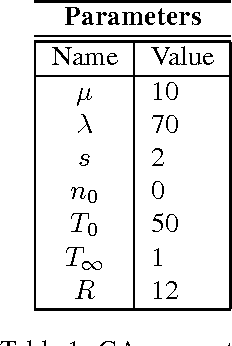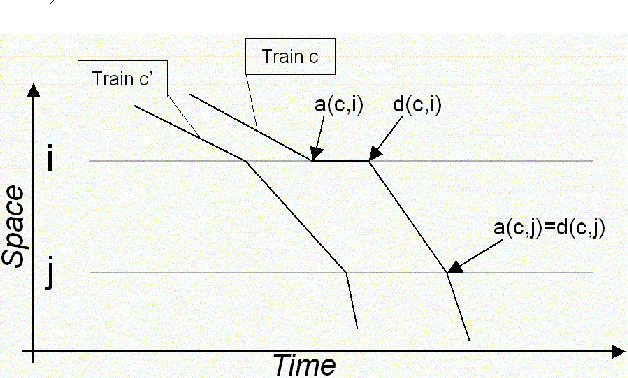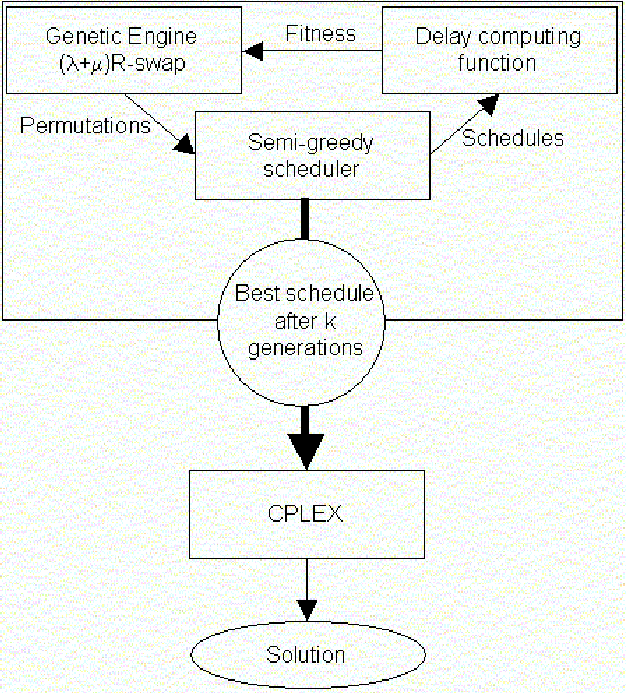An efficient memetic, permutation-based evolutionary algorithm for real-world train timetabling
Paper and Code
Oct 31, 2005



Train timetabling is a difficult and very tightly constrained combinatorial problem that deals with the construction of train schedules. We focus on the particular problem of local reconstruction of the schedule following a small perturbation, seeking minimisation of the total accumulated delay by adapting times of departure and arrival for each train and allocation of resources (tracks, routing nodes, etc.). We describe a permutation-based evolutionary algorithm that relies on a semi-greedy heuristic to gradually reconstruct the schedule by inserting trains one after the other following the permutation. This algorithm can be hybridised with ILOG commercial MIP programming tool CPLEX in a coarse-grained manner: the evolutionary part is used to quickly obtain a good but suboptimal solution and this intermediate solution is refined using CPLEX. Experimental results are presented on a large real-world case involving more than one million variables and 2 million constraints. Results are surprisingly good as the evolutionary algorithm, alone or hybridised, produces excellent solutions much faster than CPLEX alone.
 Add to Chrome
Add to Chrome Add to Firefox
Add to Firefox Add to Edge
Add to Edge